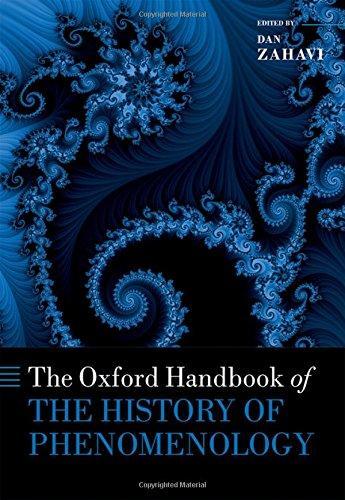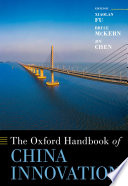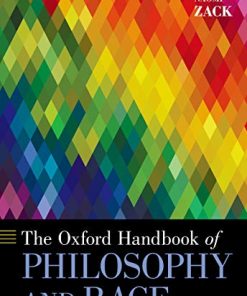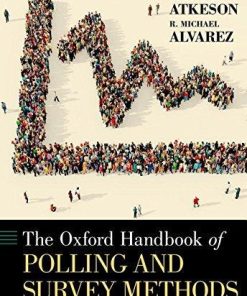The Oxford Handbook of the History Phenomenology (Oxford Handbooks)
$50.00 Original price was: $50.00.$25.00Current price is: $25.00.
The Oxford Handbook of the History Phenomenology (Oxford Handbooks) – Digital Instant Dowload.
The Oxford Handbook of the History Phenomenology (Oxford Handbooks) – Digital Instant Dowload.

Product details:
- ISBN-10 : 0198755341
- ISBN-13 : 978-0198755340
- Author: Pavlos Kontos
This Oxford Handbook offers a broad critical survey of the development of phenomenology, one of the main streams of philosophy since the nineteenth century. It comprises thirty-seven specially written chapters by leading figures in the field, which highlight historical influences, connections and developments, and offer a better comprehension and assessment of the continuity as well as diversity of the phenomenological tradition.
The handbook is divided into three distinct parts. The first part addresses the way phenomenology has been influenced by earlier periods or figures in the history of philosophy. The second part contains chapters targeting prominent phenomenologists: How was their work affected by earlier figures, how did their own views change over time, and what kind of influence did they exert on subsequent thinkers? The contributions in the third part trace various core topics such as subjectivity, intersubjectivity, embodiment, spatiality, imagination etc. in the work of different phenomenologists, in order to explore how the notions were transformed, enriched, and expanded up through the century.
Table contents:
Part I: Traditions
1:Aristotle in phenomenology, Pavlos Kontos
2:Descartes’ Notion of the Mind-Body Union and its Phenomenological Expositions, Sara Heinämaa & Timo Kaitaro
3:Kant, Neo-Kantianism, and Phenomenology, Sebastian Luft
4:Phenomenology and German Idealism, Alexander Schnell
5:Phenomenology and Descriptive Psychology: Brentano, Stumpf, Husserl, Denis Fisette
Part II: Figures
6:Husserl’s Early Period: Juvenilia and the Logical Investigations, Peter Andras Varga
7:Husserl’s Middle Period and the Development of his Ethics, John Drummond
8:Pre-Predicative Experience and Life-World: Two Distinct Projects in Husserl’s Late Phenomenology, Andrea Staiti
9:Scheler on the Moral and Political Significance of the Emotions, Zachary Davis and Anthony Steinbock
10:Edith Stein’s Challenge to Sense-Making: The Role of the Lived Body, Psyche and Spirit, Antonio Calcagno
11:The Early Heidegger’s Phenomenology, Daniel O. Dahlstrom
12:The Middle Heidegger’s Phenomenological Metaphysics, Steven Crowell
13:Phenomenology and Ontology in the Later Heidegger, Tobias Keiling
14:Schutz and Gurwitsch on Agency, Michael D. Barber
15:Sartre’s Transcendental Phenomenology, Jonathan Webber
16:The Later Sartre: From Phenomenology to Hermeneutics to Dialectic and Back, Thomas R. Flynn
17:Simone de Beauvoir: Philosopher, Author, Feminist, Debra Bergoffen
18:Science in Merleau-Ponty’s Phenomenology: From the Early Work to the Later Philosophy, Komarine Romdenh-Romluc
19:Merleau-Ponty from 1945 to 1952: The Ontological Weight of Perception and the Transcendental Force of Description, Donald A. Landes
20:Rereading the Later Merleau-Ponty in the Light of his Unpublished Work, Emmanuel de Saint Aubert
21:Jan Patocka’s Philosophical Legacy, James Dodd
22:An Immense Power: The Three Phenomenological Insights supporting Derridean Deconstruction, Leonard Lawlor
23:When Alterity becomes Proximity: Levinas’s Path, Robert Bernasconi
24:Turn to Excess: The Development of Phenomenology in Late Twentieth Century French Thought, Christina Gschwandtner
Part III: Themes
25:Phenomenological Methodology, Karl Mertens
26:Subjectivity: From Husserl to His Followers (and Back Again), Rudolf Bernet
27:The Inquietude of Time and the Instance of Eternity: Husserl, Heidegger, and Levinas, Nicolas de Warren
28:Embodiment and Bodily Becoming, Sara Heinämaa
29:From the Origin of Spatiality to a Variety of Spaces, Filip Mattens
30:Intentionality: Lived Experience, Bodily Comportment, and the Horizon of the World, Dermot Moran
31:Practical Intentionality: From Brentano to the Phenomenology of the Munich and Göttingen Circles, Alessandro Salice
32:Ideal Verificationism and Perceptual Faith: Husserl and Merleau-Ponty on Perceptual Knowledge, Walter Hopp
33:The World of Experience, Hanne Jacobs
34:Imagination De-Naturalized: Phantasy, the Imaginary, and Imaginative Ontology, Julia Jansen
35:Value, Freedom, Responsibility: Central Themes in Phenomenological Ethics, Sophie Loidolt
36:Historicity and the Hermeneutic Predicament: from Yorck to Derrida, Hans Ruin
37:Intersubjectivity, Sociality, Community: The Contribution of the Early Phenomenologists, Dan Zahavi
You may also like…
Uncategorized
The Oxford Handbook of Philosophy and Race (Oxford Handbooks) 1st Edition, (Ebook PDF)
Linguistics - Linguistics
The Oxford Handbook of Language Attrition (Oxford Handbooks) Monika S. Schmid (Editor)
Reference - Genealogy & Family History











